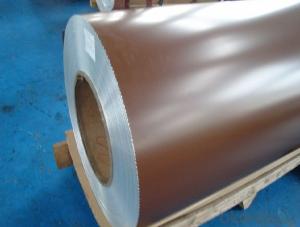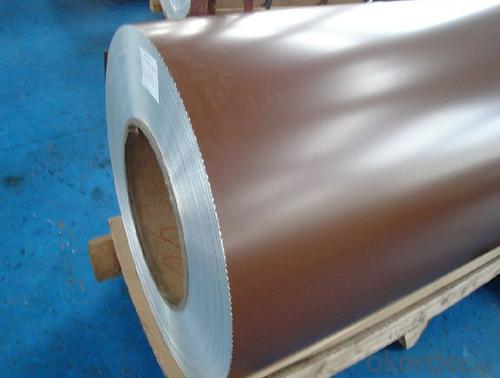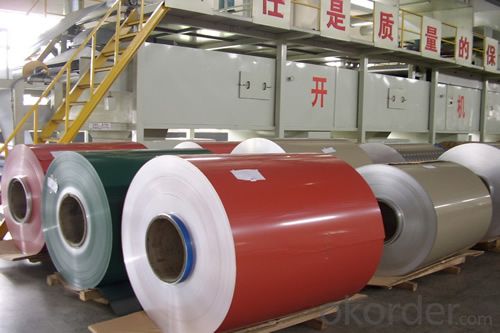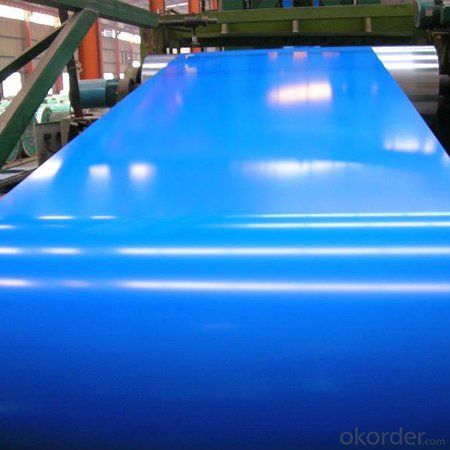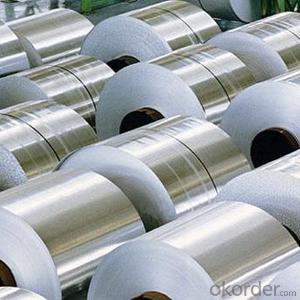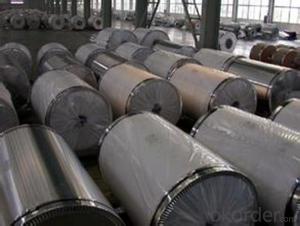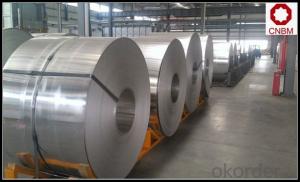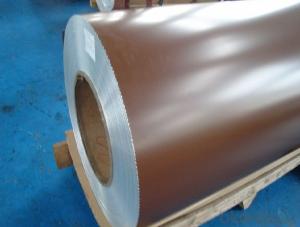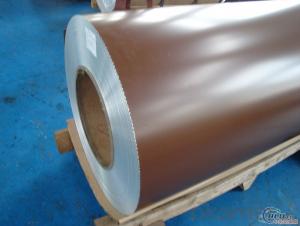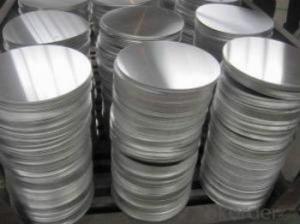3003 Mill Finished Color Coated Aluminum Coils for Sale
- Loading Port:
- Shanghai
- Payment Terms:
- TT OR LC
- Min Order Qty:
- 2.5
- Supply Capability:
- 5000 m.t./month
OKorder Service Pledge
OKorder Financial Service
You Might Also Like
Specification
Mill Finished Color Coated Aluminium Coil
l Product Specification
| Coated aluminum coil | ||||
| Alloy No. | Thickness (mm) | Width (mm) | Temper | |
| A1050,A1060, A1070,A1100,A1235,A1245 | 0.2-3.0 | 20-1900 | O,H12,H22,H14,H24,H16,H26,H18 | |
| 4.0-12.0 | 1000-1900 | H111,H112 | ||
| A3003,A3004,A3105 | 0.2-4.0 | 20-1900 | O,H12,H22,H14,H24,H16,H26,H18 | |
| 4.0-12.0 | 1000-1900 | H111,H112 | ||
| A5052,A5083,A5754,A5005 | 0.2-4.0 | 20-1900 | O,H12,H22,H14,H24,H16,H26,H18 | |
| 4.0-12.0 | 1000-1900 | H111,H112 | ||
| A6061,A6082,A6063 | 0.8-3.0 | 20-1900 | O | |
| A8011,A1145,A1235 | 0.005-0.2 | 20-1700 | O,,H18,H24 | |
| ID | 76mm,152mm,200mm,300mm,505mm | |||
| Packing : Export wooden pallets, wooden case | ||||
| Standards:ASTM-B209. EN573-1, GB/T3880.1-2006 | ||||
| Quality of material: totally free from defects like white rust, oil patches, roll marks, edge damage, camber, dents, holes, break lines, scratches and free from coil set | ||||
| Application : Mainly used in signs, billboards, building exterior decoration, bus body, high-rise buildings and factories wall decoration, kitchen sink, lamp, fan leaves, with pieces of electronic, chemical equipment, sheet metal processing parts, deep drawing or spinning hollowware, welding parts, heat exchangers, bell surface and disk, plate, kitchenware, decorations, reflective devices, ect | ||||
| MOQ | 2.5 tons | |||
| Payment term: | TT, L/C | |||
| Delivery Time | 15 days after 30% TT payment or receiving L/C copy | |||
| Kind attention : Specifications can be customized as the customer’s requirements. | ||||
l Packaging & Delivery
Packaging detail: Seaworthy Export Standard Wooden Pallet and with damp proof film as first layer, Kraft paper as second layer, Cardboard card as third layer Criss-cross steel strip to fix outside
Delivery detail: About 15 days
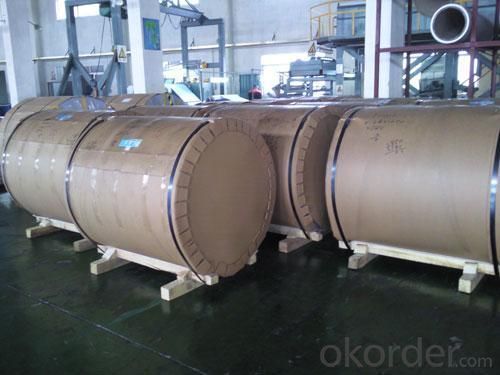
l Company Profile
CNBM International Corporation, China National Building Materials (Group) Corporation, is one of the largest companies in China building material & equipment industry, with 42,800 employees and sales in 2005 of US Dollar 4.395 billion. In 2006, China National Building Material Company Limited was listed on Hong Kong Stock Market with the stock code as 3323. |
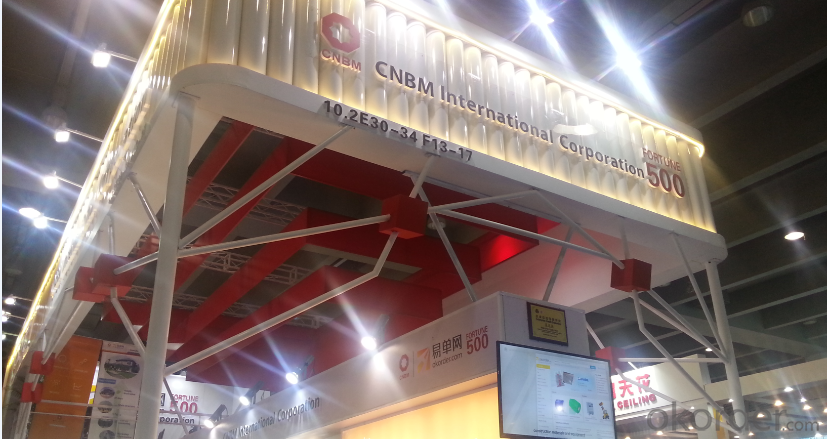
l CNBM World Wide
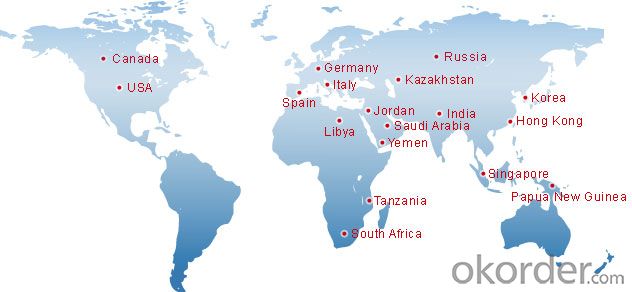
l Products Images
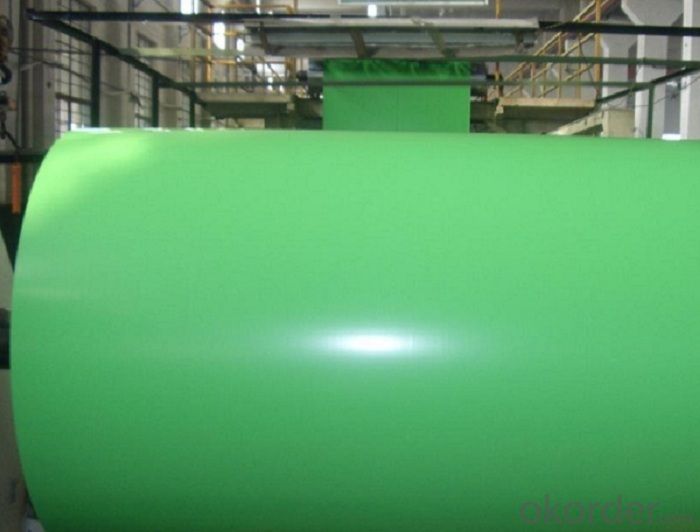
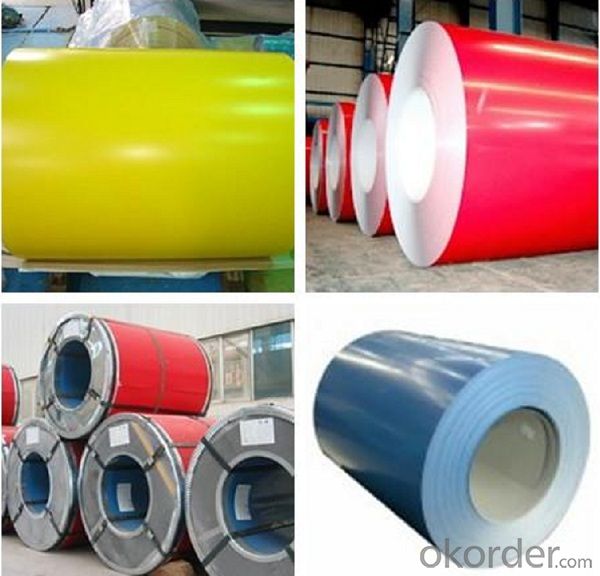
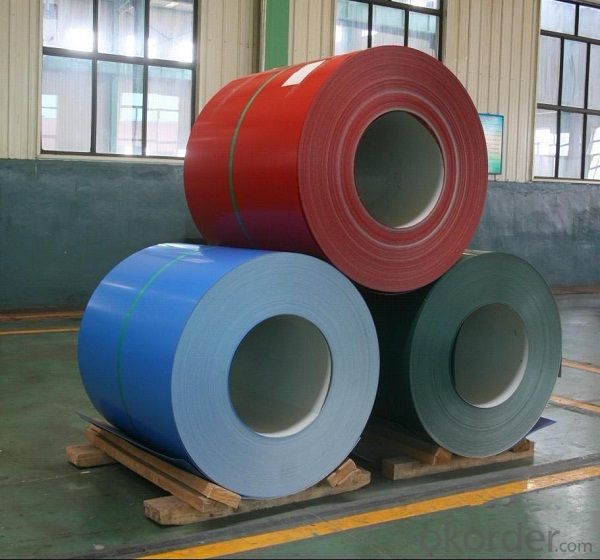
l Certificates
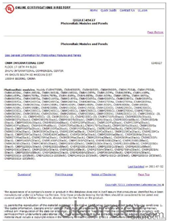
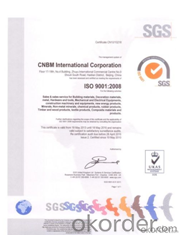
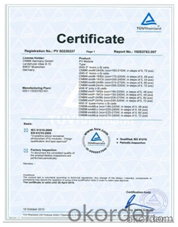
l FAQ
Q: Do you provide free samples?
A: Yes, free samples will be sent to you on freight at destination.
Q: Can I get your latest products catalogue?
A: Yes, it will be sent to you in no time.
Q: What is the MOQ?
A: 2.5 tons
Q: What are your payment terms?
A: We accept L/C, T/T
- Q: How long do aluminum coils typically last?
- Aluminum coils typically have a lifespan of around 15 to 20 years. However, the longevity of the coils greatly depends on several factors such as the quality of the aluminum used, the installation process, and the maintenance and care provided. Regular maintenance, such as cleaning the coils and ensuring proper airflow, can significantly extend their lifespan. Additionally, environmental factors like exposure to harsh weather conditions and corrosive substances can also affect their durability. Therefore, while aluminum coils have a decent lifespan, it is essential to provide proper care and maintenance to ensure their longevity.
- Q: How much is the 25mm aluminum coil at current market?
- You must mean 25-wide aluminum coil. The price consists of the aluminum ingot price and processing charges. For example, if the processing price is 4500 yuan, it is relatively cheap. 25mm-wide aluminum coil is very narrow, so it will be much complicated to strip.
- Q: Is it possible to use a soldering iron to fix a damaged or broken aluminum coil?
- <p>Using a soldering iron to repair an aluminum coil is not typically effective. Aluminum has a high thermal conductivity and doesn't bond well with solder, making it difficult to create a strong joint. Instead, consider using specialized aluminum welding techniques or brazing, which involves using a filler metal with a melting point higher than the base metal. For small repairs, you might also explore the use of aluminum repair epoxy or other adhesives designed for metal bonding. Always ensure to follow safety precautions and consult with a professional if the repair is complex or if the coil is part of a critical system.</p>
- Q: Is it possible to recycle old aluminum coils as scrap metal?
- <p>Yes, old aluminum coils can be used as a source of scrap metal for recycling. Aluminum is a highly recyclable material, and recycling it helps conserve resources and energy. Old aluminum coils can be melted down and repurposed into new aluminum products. It's important to ensure that the coils are clean and free of contaminants before recycling to maintain the quality of the recycled aluminum. Always check with local recycling centers or scrapyards for specific guidelines on recycling aluminum coils.</p>
- Q: Are aluminum coils suitable for construction purposes?
- <p>Yes, aluminum coils can be used for construction. They are valued for their lightweight, corrosion resistance, and high strength-to-weight ratio, making them ideal for applications such as roofing, facades, and structural components. Aluminum's malleability allows for easy shaping and forming, which is beneficial in various construction projects. It's also sustainable due to its recyclability, reducing environmental impact.</p>
- Q: This question asks about the impact of aluminum coils on the quality of food when it is stored. It seeks to understand if there are any changes in the food's properties due to the presence of aluminum coils.
- <p>Aluminum coils themselves do not directly affect the quality of food during storage. They are often used in the packaging industry for their excellent barrier properties against light, oxygen, and moisture, which can help preserve the freshness and quality of food by preventing spoilage and oxidation. However, it's important to note that aluminum does not interact with food in a way that alters its taste or nutritional content. Any potential health concerns related to aluminum exposure are more associated with the manufacturing process and not with the storage of food in aluminum-coiled packaging.</p>
- Q: An they say aluminum can cause breast cancer in some.
- actually, it's usually ANTI-PERSPIRANTS that contain aluminum. what the aluminum does, is block the sweat from exiting your sweat glands, therefore, keeping your underarms dry. however, your body sweats for a couple reasons: one being the method to rid toxins. when you block the main glands, which just so happen to be under your arms, you risk keeping those toxins in your body. Now, deodorant on the other hand, allows you to naturally perspire, but just adds an aroma if you will so that you won't smell funky. it won't keep you as dry, though. i would love to be able to use plain deodorant or the organic kind you mentioned, but i sweat a lot must resort to using anti-perspirants. if you must, just keep it to a minimum. for example, don't use at night. let your body cleanse itself while you sleep at least
- Q: can you use the Brasso Aluminum cleaner on aluminum wheels? i have a set of mickey thompson classic II wheels and i want to polish them up. they have water spots that are almost impossible to clean. how can i shine them up to make them almost like chrome wheels? i heard brasso works great but then i heard it damages the wheels?
- There are many products you can use to polish aluminum wheels, Brasso aluminum polish being one of them. It will take a TON of elbow grease and patience to get a really shiny surface, and it will only become chrome-like if the wheels' surface is already perfectly smooth. The commercially available polishes should remove water spots and will tidy up a surface that is polished already, but will not make a non-polished aluminum surface chrome-like. I've used Mother's and Auto-sol, both with good success. Again, it takes a LOT of work. Follow the instructions carefully. Once you get that shiny surface, it will take periodic regular polishing to maintain. If you are starting with a much more weathered surface, you'll need to go the sanding, wet-sanding, rubbing compound, jeweller's rouge, then metal polish route. A ton of work, but doable. Look up how to polish aluminum on Google.
- Q: Are aluminum coils suitable for solar panel applications?
- Yes, aluminum coils are suitable for solar panel applications. Aluminum is a lightweight and highly conductive material that has several advantages for solar panels. Firstly, aluminum coils can effectively transfer and dissipate heat, which is crucial for maintaining the efficiency and lifespan of solar panels. Aluminum's excellent thermal conductivity helps in reducing the temperature of the solar cells, preventing overheating and potential damage. Secondly, aluminum coils are highly resistant to corrosion, making them an ideal choice for outdoor solar panel installations. Solar panels are exposed to various weather conditions, including rain, snow, and humidity, which can lead to corrosion and degradation. Aluminum's natural oxide layer acts as a protective barrier, preventing corrosion and increasing the durability of the solar panels. Additionally, aluminum is a cost-effective material that is widely available and easy to manufacture. Its lightweight nature also contributes to easier transportation and installation of solar panels, reducing overall costs. In conclusion, aluminum coils are suitable for solar panel applications due to their excellent thermal conductivity, corrosion resistance, durability, and cost-effectiveness.
- Q: Can aluminum coils be used for insulation purposes?
- No, aluminum coils cannot be used for insulation purposes as aluminum is a conductor of heat and does not possess insulating properties.
Send your message to us
3003 Mill Finished Color Coated Aluminum Coils for Sale
- Loading Port:
- Shanghai
- Payment Terms:
- TT OR LC
- Min Order Qty:
- 2.5
- Supply Capability:
- 5000 m.t./month
OKorder Service Pledge
OKorder Financial Service
Similar products
Hot products
Hot Searches
Related keywords
